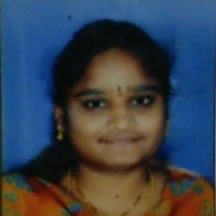
P.Sunitha
Work place: Dept. of ECE, JNTUK,India
E-mail: Sunitha4949@gmail.com
Website:
Research Interests: Speech Synthesis, Speech Recognition
Biography
P.Sunitha received B.Tech Degree in E.C.E from JNTU, Kakinada, India in 2002 and M.Tech degree in Digital Electronics and Communication Systems from JNTU, Kakinada, India. She is currently a research scholar with the Department of E.C.E, JNTU, Kakinada, India. Her research interest is Speech Processing.
Author Articles
Speech Enhancement based on Wavelet Thresholding the Multitaper Spectrum Combined with Noise Estimation Algorithm
DOI: https://doi.org/10.5815/ijigsp.2019.09.05, Pub. Date: 8 Sep. 2019
This paper presents a method to reduce the musical noise encountered with the most of the frequency domain speech enhancement algorithms. Musical Noise is a phenomenon which occurs due to random spectral speaks in each speech frame, because of large variance and inaccurate estimate of spectra of noisy speech and noise signals. In order to get low variance spectral estimate, this paper uses a method based on wavelet thresholding the multitaper spectrum combined with noise estimation algorithm, which estimates noise spectrum based on the spectral average of past and present according to a predetermined weighting factor to reduce the musical noise. To evaluate the performance of this method, sine multitapers were used and the spectral coefficients are threshold using Wavelet thresholding to get low variance spectrum .In this paper, both scale dependent, independent thresholdings with soft and hard thresholding using Daubauchies wavelet were used to evaluate the proposed method in terms of objective quality measures under eight different types of real-world noises at three distortions of input SNR. To predict the speech quality in presence of noise, objective quality measures like Segmental SNR ,Weighted Spectral Slope Distance ,Log Likelihood Ratio, Perceptual Evaluation of Speech Quality (PESQ) and composite measures are compared against wavelet de-noising techniques, Spectral Subtraction and Multiband Spectral Subtraction provides consistent performance to all eight different noises in most of the cases considered.
[...] Read more.Multi Band Spectral Subtraction for Speech Enhancement with Different Frequency Spacing Methods and their Effect on Objective Quality Measures
DOI: https://doi.org/10.5815/ijigsp.2019.05.06, Pub. Date: 8 May 2019
This paper mainly studies Multi Band Spectral Subtraction (MBSS) for speech enhancement based on the spectrum representation in the frequency domain with three different scales(linear, log, mel) and their effect on performance measures in presence of additive non-stationary noise at different ranges of input SNR. Since speech is non-stationary signal, noise distribution is non-uniform i.e few frequency components are affected severely than others. A common method to restore the original speech in presence of noise is speech enhancement by suppressing the back ground noise. Multi Band Spectral Subtraction is one among the speech enhancement techniques which performs spectral subtraction by dividing noisy speech spectrum into uniformly spaced non over lapping frequency bands and spectral over subtraction is performed in each band separately. The performance of this method is evaluated in terms of objective measures such as Cepstrum distance, Log Likelihood Ratio, Weighted Spectral Slope distance, segmental SNR and Perceptual Evaluation of Speech Quality.
[...] Read more.Other Articles
Subscribe to receive issue release notifications and newsletters from MECS Press journals